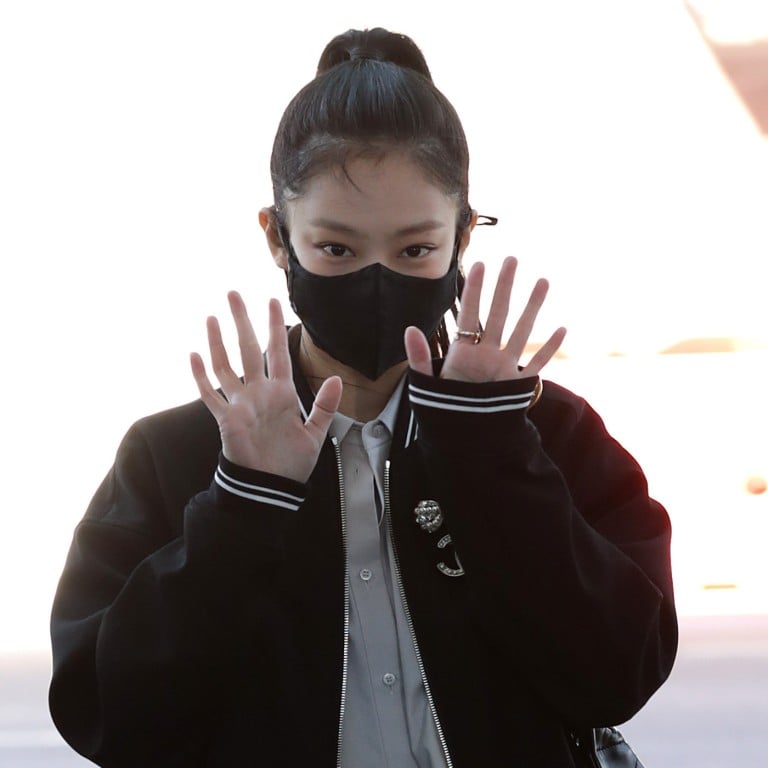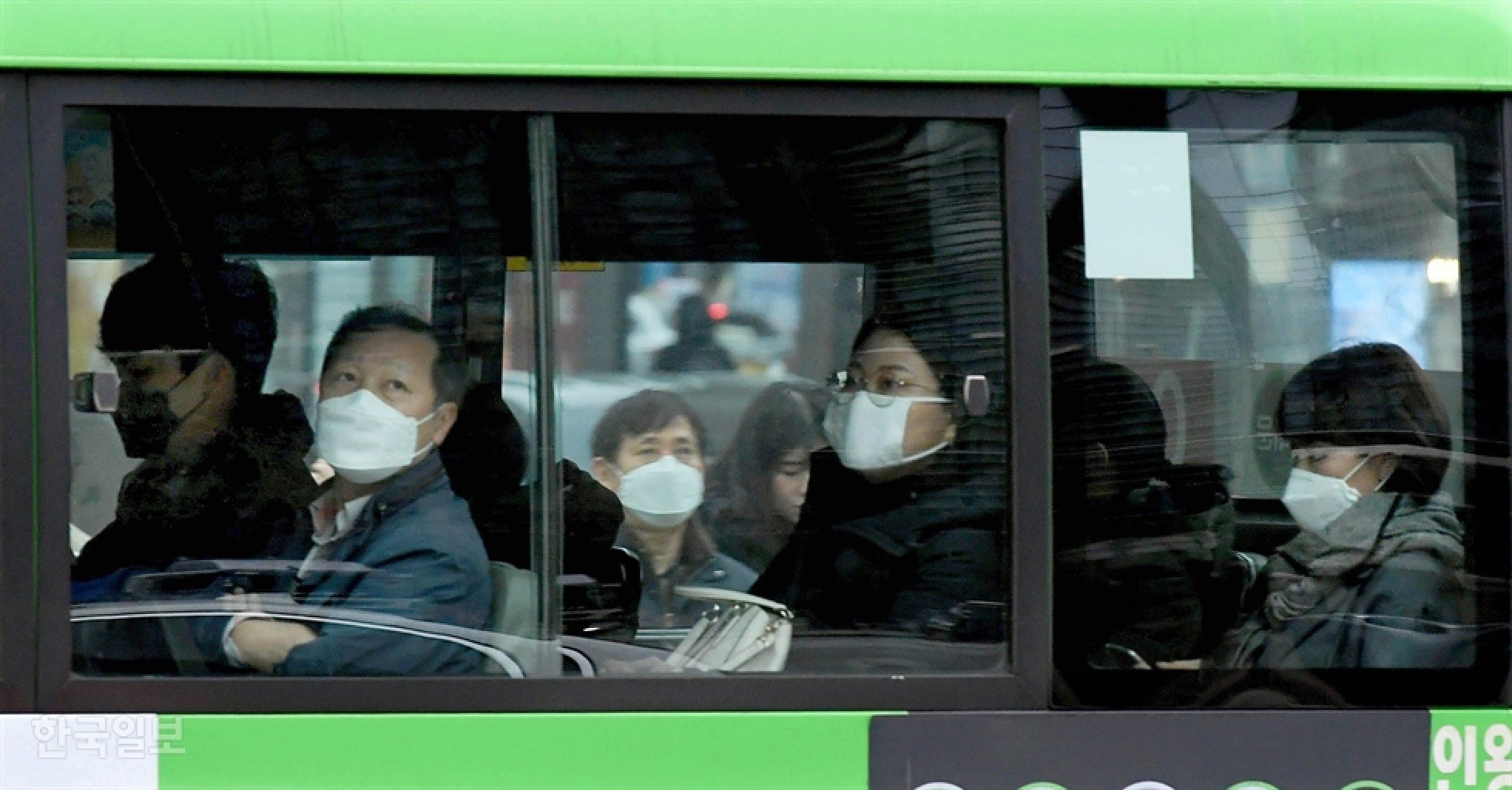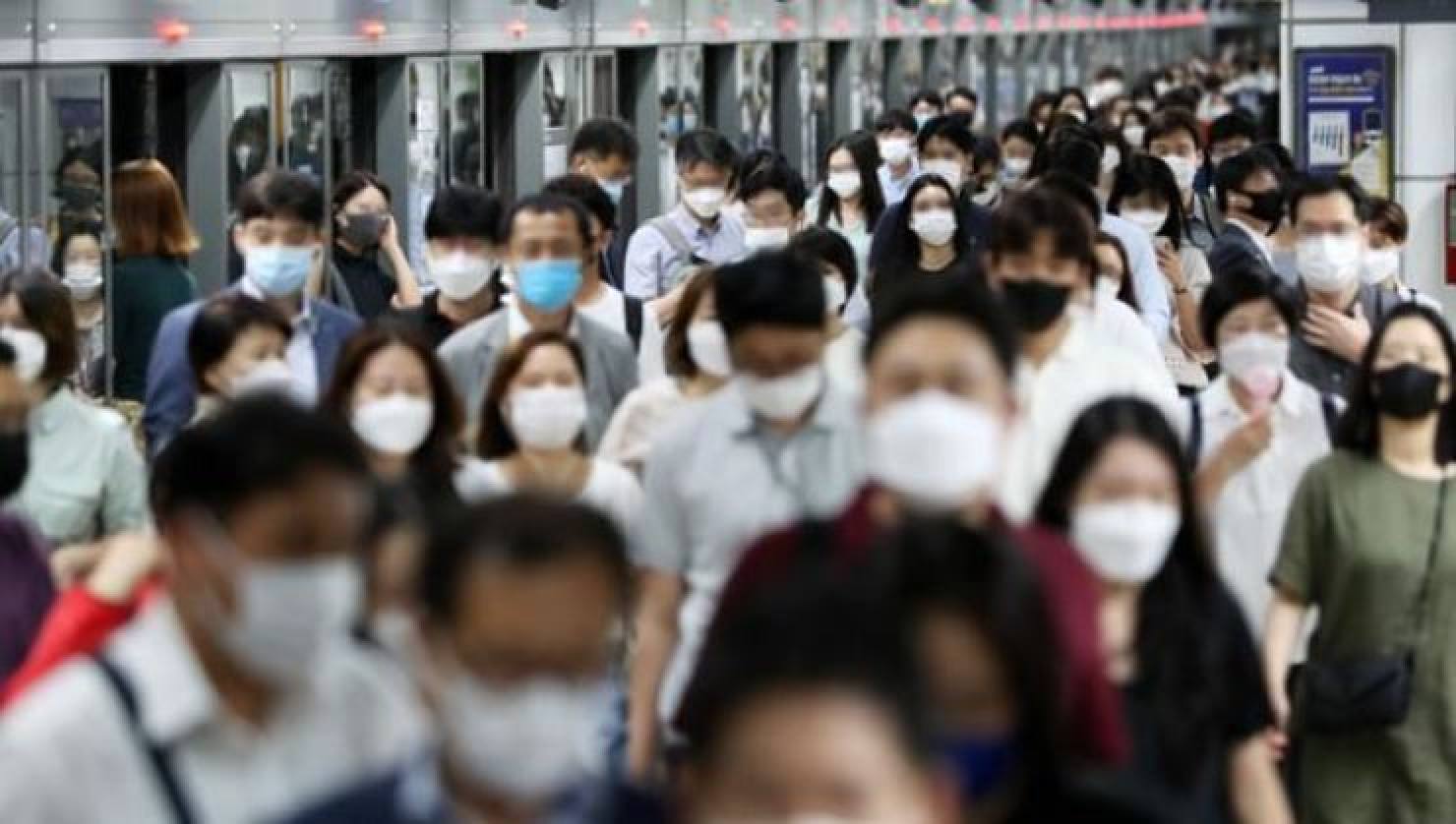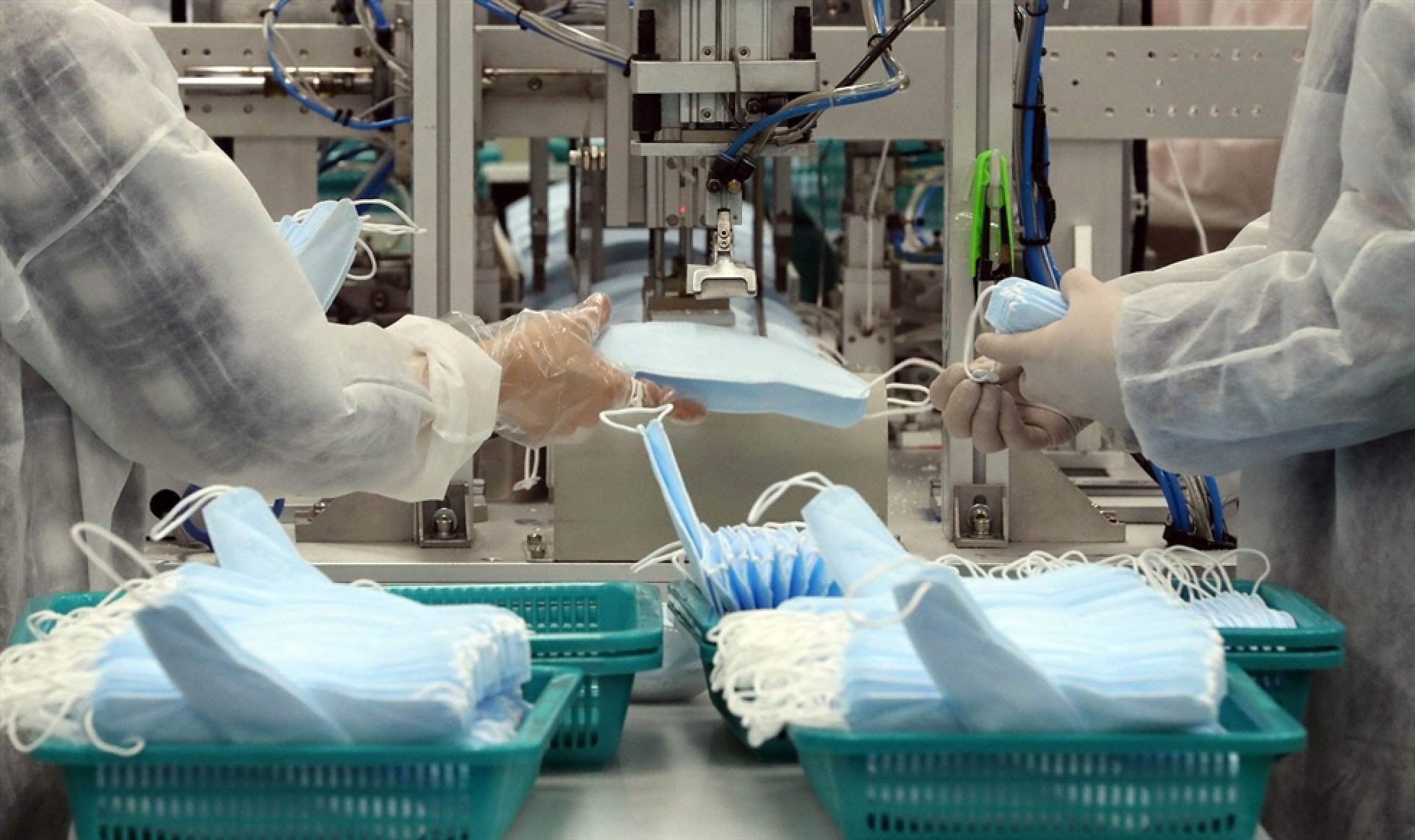
Why many Koreans will wear face masks after Covid: to show respect, avoid attention – and other diseases – and hide their fake smiles at work
- Many South Koreans plan on wearing face masks even after they no longer have to in order to curb Covid-19 – they see advantages to hiding half their face
- Masks prevent other diseases too, allow them to avoid attention and hide emotions, and are a show of respect, they say. Some just find not wearing one strange
By Lee Hyo-jin
In South Korea, before Covid-19, face masks were mostly used by celebrities to hide their faces or were worn by people during days of high pollution.
Nearly two years have passed since the wearing of one became mandatory in public places in the country.
However, as South Korea moves forward from its most recent wave of infections thanks to the Omicron variant, the wearing of a mask may at some point soon become a matter of personal choice again.
Daily infection numbers are dropping, and the government’s approach to the pandemic has changed to one of living with the virus and to treating Covid-19 more like an endemic disease.
The authorities have removed limits on the operating hours of certain facilities and the maximum number of people allowed at private gatherings. Masks are, currently, still mandated.
How face masks became a fashion statement
Still, not everyone seems ready to bid farewell to masks. Some have discovered unexpected benefits to wearing one, while others are still wary of being infected.
“At first it was uncomfortable, but now I’m used to wearing masks everywhere – in the office, on public transport and at the gym. It would feel strange not covering my face in front of other people,” says Choi Young-kyung, a 28-year-old office worker in Seoul.
“And frankly speaking, I like it that I can hide half of my face when I speak with my superiors at work. They don’t seem to notice that I’m smiling only with my eyes, not with my mouth, a useful skill I’ve developed thanks to the mask.”

Some plan to continue wearing them because they have proved effective in preventing other illnesses, not just the coronavirus.
“Before the pandemic, I frequently suffered from a sore throat and a runny nose. I’ve not experienced [any] symptoms during the last two years, which means that face masks are really effective in preventing other diseases,” says Lee Jae-gil, a 55-year-old restaurant owner in Seoul.
“I’ll probably keep wearing them except during the hottest days in summer.”
It has become a useful way to hide our faces to avoid unwanted attention
Lingering concerns about the coronavirus mean many, uneasy that the government will be easing so many curbs, will wear masks for the foreseeable future.
“With lectures switching offline and more gatherings being held at the university, I’m worried I might get the virus any time. Even if the mask mandate is lifted outdoors, I will keep on wearing them everywhere,” says a 22-year-old student surnamed Lee who studies at Korea University.
Lim Myung-ho, a professor of psychology at Dankook University, says that even if the country leaves the choice to wear a mask to the individual, masks won’t disappear soon.
“Before the health crisis, masks were perceived to be worn only by ill people or those who are overly concerned about their health. Now, it has become a useful way to hide our faces to avoid unwanted attention, and it has also become a sign of showing respect to others.”

Lim explains that it will take a fair amount of time for people to get used to face-to-face interactions in a post-pandemic world.
Experts also note that, unlike some Western countries where mask mandates have led to protests among those who view it as violation of personal freedom, such debates do not take place in South Korea. Koo Jeong-woo, a sociologist at Sungkyunkwan University, says this reflects the “collectivist nature” of Koreans.
“Koreans are not only used to adhering to rules set by the government, they also fear standing out. Even though wearing a mask isn’t obligatory outdoors if distance is kept from others, everyone wears them, because they are concerned about the looks they might get from others.”

Koo also predicts that even if mask rules are lifted, a majority of people will wear them in public places such as the subway and indoor gyms.
“Face masks are a vital tool in preventing infections, but it worries me that the negative impacts of face masks on society have been overlooked,” he says. “Having half our face hidden during conversations disrupts social interactions and ability to share emotions.”

